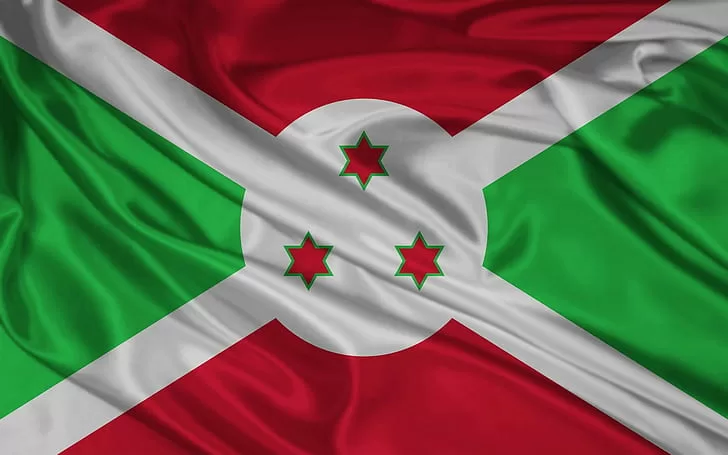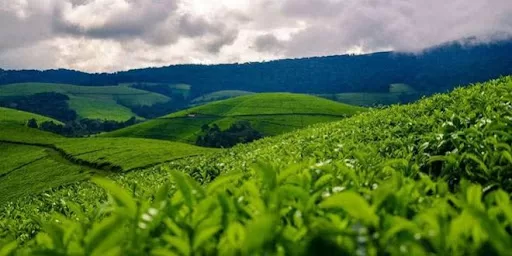Burundi Country Report

Burundi is a beautiful country located in East Africa. It’s known for its stunning landscapes, including mountains, lakes, and national parks. In terms of politics, Burundi has had a complex history. It went through a period of civil war and political instability, but in recent years, efforts have been made to promote peace and stability in the country. Burundi operates under a presidential republic system, where the president is both the head of state and the head of government. The National Assembly is the country’s legislative body. Burundi has faced some challenges in terms of human rights and political freedoms. However, there have been ongoing efforts to improve the situation and promote democratic governance. The country has made progress in terms of economic development, with sectors like agriculture, mining, and tourism contributing to its growth. Burundi is known for its coffee production and has beautiful national parks where visitors can explore its diverse wildlife.
Last updated: July 18, 2023
Security
In terms of security and threats in Burundi, the country has made significant progress in recent years. However, it’s important to note that there are still some challenges. Burundi has experienced periods of political instability and civil unrest in the past. While the situation has improved, there are occasional reports of political tensions and sporadic incidents of violence. The government of Burundi has been working to strengthen security measures and maintain stability in the country. They have made efforts to improve law enforcement capabilities and address issues related to crime and public safety. It’s always advisable for travelers to stay informed about the current situation and follow any travel advisories or guidelines issued by their respective governments. Additionally, it’s recommended to take necessary precautions, such as avoiding large gatherings and being aware of your surroundings.
Last updated: April 21, 2022
Infrastructure

Burundi has been working on improving its transportation networks, energy systems, and telecommunications. In terms of transportation, Burundi has been investing in road infrastructure to enhance connectivity within the country and with neighboring nations. Efforts have also been made to develop and upgrade airports and seaports to facilitate trade and travel. The energy sector in Burundi has seen advancements as well. The government has been focusing on expanding access to electricity and developing renewable energy sources, such as hydroelectric power. In terms of telecommunications, Burundi has made progress in expanding mobile networks and internet connectivity. This has contributed to improved communication and access to information for its citizens. While there have been infrastructure developments, it’s important to note that challenges still exist, particularly in rural areas. Efforts are ongoing to ensure equitable access to infrastructure across the country.
Last updated: April 3, 2023
Environment

The environment in Burundi is incredibly diverse and beautiful! The country is known for its rich biodiversity, with various ecosystems ranging from mountains to lakes and forests. Burundi is home to several national parks and nature reserves, such as Kibira National Park and Ruvubu National Park. These protected areas help conserve the country’s unique flora and fauna, including rare species like the Burundi black colobus monkey and the Nile crocodile. However, like many other countries, Burundi faces environmental challenges. Deforestation, soil erosion, and habitat loss are some of the issues that need attention. Efforts are being made to promote sustainable land management practices and conservation initiatives.
Burundi is not prone to typhoons, but floods occur during two rainy seasons: February to May and September to November. Although the western part of the country is located in a region of high seismic activity, earthquakes are usually of moderate intensity and rarely cause significant damage or casualties. Pollution from landmines and unexploded ordnance also remains a problem in some areas of the northwest.
Last updated: March 17, 2022
Health and Medical
Burundi has a high burden of communicable diseases, including malaria, HIV/AIDS, and tuberculosis. The government has implemented programs to combat these diseases, such as providing access to mosquito nets, antiretroviral therapy, and tuberculosis treatment. Healthcare infrastructure in Burundi is still developing, particularly in rural areas where access to quality healthcare can be limited. The government, along with international partners, has been investing in healthcare facilities, medical equipment, and training healthcare professionals. However, it’s important to note that there are still gaps in healthcare services and resources. Access to healthcare, especially in remote areas, can be a challenge, and there is a need for continued efforts to strengthen the healthcare system.
Last updated: August 24, 2023
Political
Burundi is a presidential republic, with the President as the head of state and government. The country has a multi-party system, with various political parties participating in elections and governance. However, it’s worth noting that Burundi has faced political challenges and periods of instability in the past. Efforts have been made to promote peace, reconciliation, and democratic processes in the country.
The National Assembly and the Senate are the two legislative bodies in Burundi, responsible for making and passing laws. Members of the National Assembly are elected through a proportional representation system, while members of the Senate are elected by electoral colleges. As with any political system, there are ongoing discussions and debates surrounding political issues in Burundi, including governance, human rights, and social justice. The government and civil society organizations are working together to address these challenges and promote a more inclusive and democratic society.
Last updated: July 18, 2023















